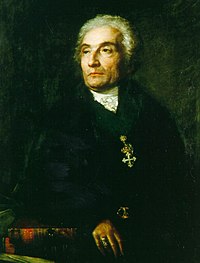He concludes,
"Young men are troubled by desire, women by love of finery and excitement. Let us therefore repress all these tendencies. Thus we shall be able to please God by rearing such athletes for Him, that we and our children may light on the blessings that are promised to them that love Him (cf. I Corinthians 2:9), by the grace and mercy of our Lord Jesus Christ, to Whom with the Father and the Holy Spirit be ascribed glory, power, and honor, now and for evermore. Amen."

